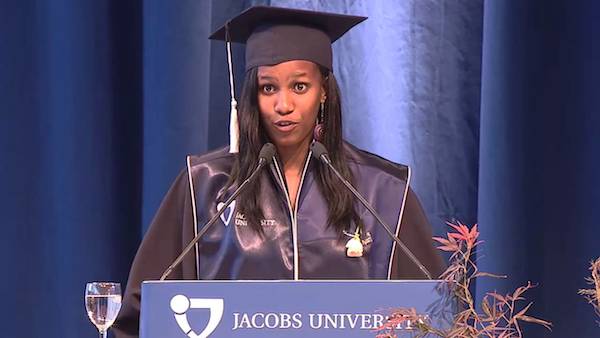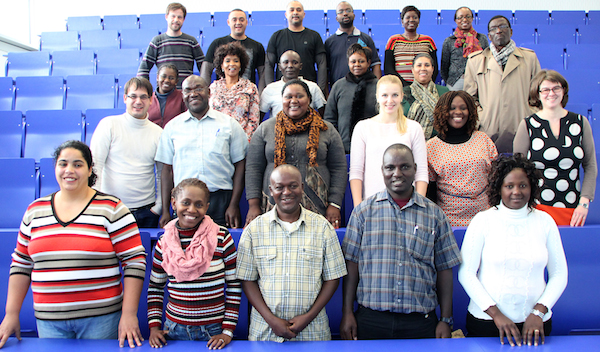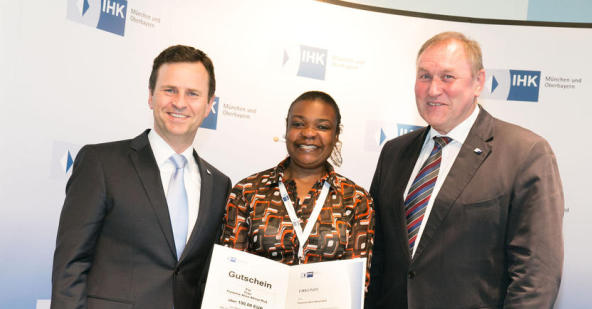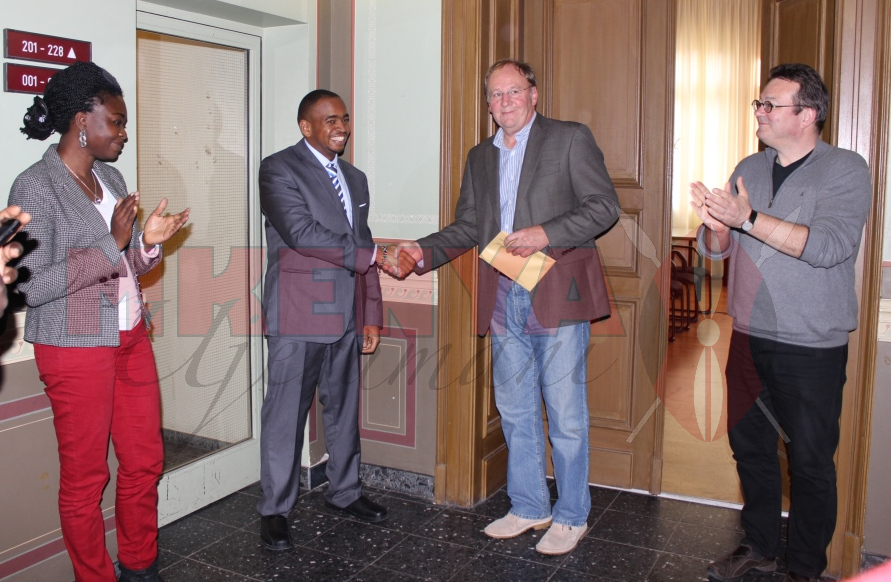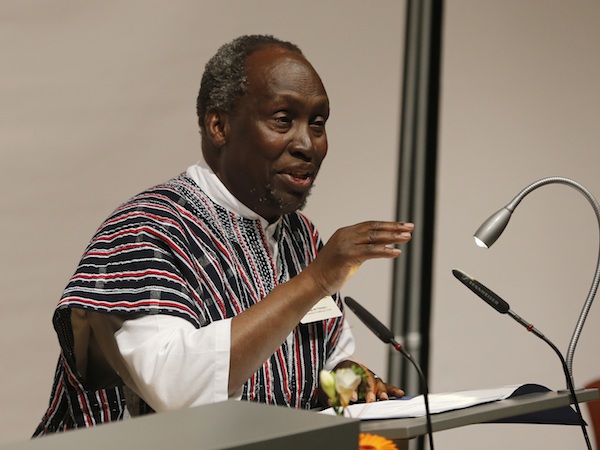
Monday this week saw Ngũgĩ wa Thiong’o, receive his honorary doctorate from the University of Bayreuth, in Southern Germany.
The literary legend was accompanied by his wife, Njeeri wa Ngũgĩ.
The doctorate was awarded by the Bayreuth International Graduate School of African Studies (BIGSAS), where Ngũgĩ had worked shortly in the 80s as a guest professor.

Prof. Dr. Stefan Leible, president of the University of Bayreuth; Brigitte Merk-Erbe, the Mayor of Bayreuth and Prof. Dr. Dymitr Ibriszimow, Head of BIGSAS, all took to the podium to express their gratitude for Ngũgĩ’s literary works and his contribution to the upholding of cultures, more so language through his work.
Ngũgĩ in his acceptance of the doctorate, shared his view on the importance of languages and cultures. According to him, the world is like an orchestra and every language spoken is an instrument in the orchestra. When only few languages dominate, then the global orchestra shrinks, with only few instruments.
Colonialism forced the middle class to speak the European languages, but with time, these languages have penetrated all social strata. He cautioned Africans who’ve lost their mother-tongues in the name of adapting European languages as the only form of communication. People have rejected their languages and this has put Africa in a “linguistic prison” which hinders cultural and intellectual development in Africa.
“Every language, every culture, has a role to play and none is superior nor inferior to the other. This kind of thinking is a fallacy.”, he insisted.
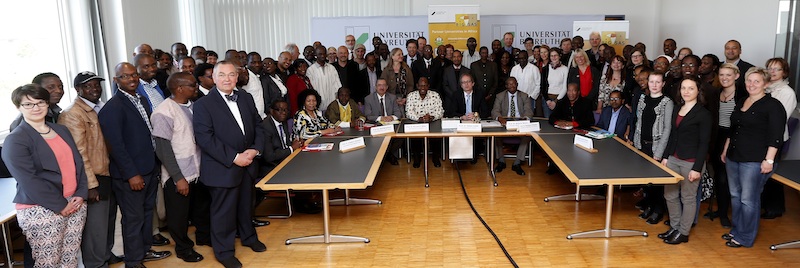
The diversity of languages that characterizes Ngũgĩ’s work and its worldwide reception, was also reflected in the readings that took place during the event. The literary scholar and BIGSAS graduate Samuel Ndogo from Eldoret / Kenya, the translator Dr. Thomas Brückner from Munich, the scholar and translator Dr. Wangui wa Goro from the UK, BIGSAS doctoral student and journalist Nadja Ofuatey-Alazard from Munich as well as the literary scholar and BIGSAS graduate Ndi Gilbert Shang from Kenya contributed texts in three languages: in Kikuyu, Ngũgĩ’s native language in which the literature was originally written, as well as in English and German.
On the same day, Ngũgĩ graced the signing of partnership agreements between the BIGSAS on behalf of the University of Bayreuth and seven African Universities. BIGSAS would like to strengthen its partnership and consequently cooperation between their department and Universities in Africa. Among those who took part in the signing were:
- Prof. Dr. Richard K. Mibey – Moi University, Eldoret, Kenya;
- Prof. Dr. Wail Benjelloun – Université Mohammed V – Agdal, Rabat, Morocco;
- Prof. Dr. Malegapuru Makgoba – University of KwaZulu-Natal, South Africa;
- Prof. Dr. Orlando A. Quilambo – Universidade Eduardo Mondlane, Maputo, Mosambique;
- Prof. Dr. Brice A. Sinsin – Université Abomey-Calavi, Cotonou, Benin;
- Dr. Worash Getaneh Shibeshi – Addis Ababa University, Ethiopien.


